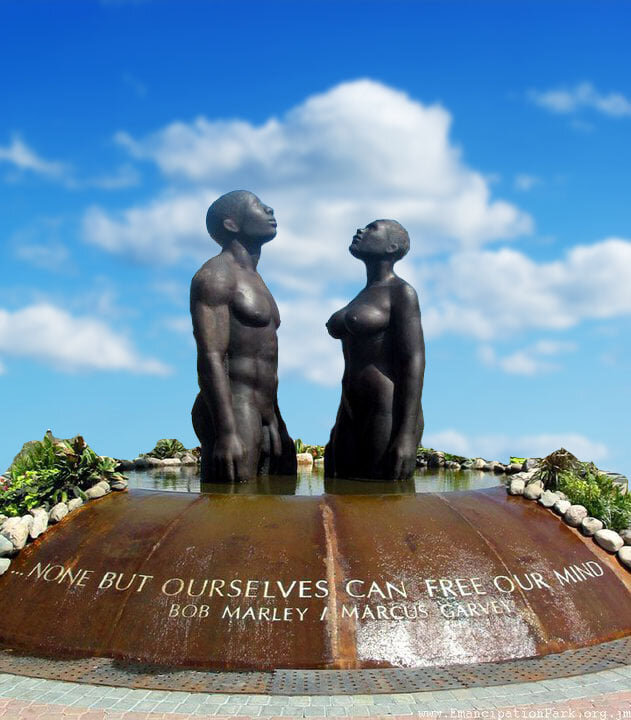
Emancipation Park - Jamaica
Jamaica’s Independence: The Struggle Continues
Richard S. Dunn August 5, 2021
Between the years 1650 and 1807 approximately 750,000 enslaved Africans were shipped to the island of Jamaica. Through successive revolts by the enslaved Africans and the inevitable decline of the slave system, slavery ended in Jamaica on August 1, 1834 however; the socio-economic, cultural, and political life of the Country were still controlled by the landowners and local oligarchy. The struggle for freedom continued although under different conditions and assumed different forms; from the development of the labor movement including Trade Unions and Universal Adult Suffrage, to the formation of political parties and the development of a national cultural identity.
The culmination of these struggles was the securing of political independence on August 6, 1962, from the former colonial master Britain; now, 59 years later how should this independence be seen? Was this independence a part of the continuum of the National Liberation struggles that was taking place in Africa, the Caribbean and Latin America? Did this independence fulfill the aspirations and intent of the freedom fighters of the slavery and pre-independence struggles? People like Sam Sharpe, Nanny, Marcus Garvey, Paul Bogle and later Hugh Buchanan and St. William Grant saw the struggles ending with self-determination, the ownership and control of the island’s natural resources, adequate wages and land reform, among others. Although formal ‘flag’ independence was achieved in 1962, the subsequent political leaders were oblivious to the new manner in which the former colonialists still held control of the island, through neo-colonialism. This came to a head between the years 1972 and 1980, when for the first time, the Country embarked on a path that would really fulfill the aspirations of the freedom fighters and those of the masses.
A progressive path to socio-economic development, self-determination and the preservation of National culture was derailed by international capitalism in general and US Imperialism in particular. After 1980 successive Administrations have slowly and deliberately distanced themselves from anything remotely progressive and the theory and practice of self-determination have been seriously undermined. Once again the model of ‘industrialization by invitation’ became the model for socio-economic development and the role of the State became increasingly miniscule in socio-economic development. True independence cannot be realized by abandoning a socio-economic structure for the masses to one based on exploitation, individualism, and subservience to neo-colonialism. Social programs have been abandoned; piece-meal benefits have been handed out to lull the masses into a daze and prevent dissent, in short; make the Country ‘safe’ for Capital.
After 59 years of independence, the country needs a revolution in ideas and practice to; take the country from the clutches of imperialism economically, politically, and culturally. After 59 years of independence there should be no national debate including parliamentary; regarding wearing natural hair in schools or anywhere else. After 59 years how can the queen still be Head-of-State, figurehead as it is; after 59 years why are Appealate Court cases still passed on to the Privy Council in London, why not empower the Caribbean Court of Justice. After 59 years of independence, Jamaica should not announce itself as the ’backyard’ of any power; that is gross political and cultural bankruptcy. Jamaica has achieved global notoriety in the fields of sports and Tourism; it has had stellar achievements in academia; however, what is the real measure of independence and sovereignty?
This revolution in ideas and practice will result in structural and organizational changes to the economy, which will provide a decent standard of living for its citizens; thereby eradicating mass poverty and providing full employment. This revolution of ideas and practice will achieve political and economic independence, the real measure of self-determination. Internationally Jamaica must ally itself more with its historical and cultural allies, the countries of Africa, Latin America and the Caribbean. It must seek and extend fraternal cooperation with Caricom and the African Union; thereby strengthening these organizations where all share a common enemy, history and culture.
Gold, Silver & Bronze Medalists 100M - Tokyo 2020


